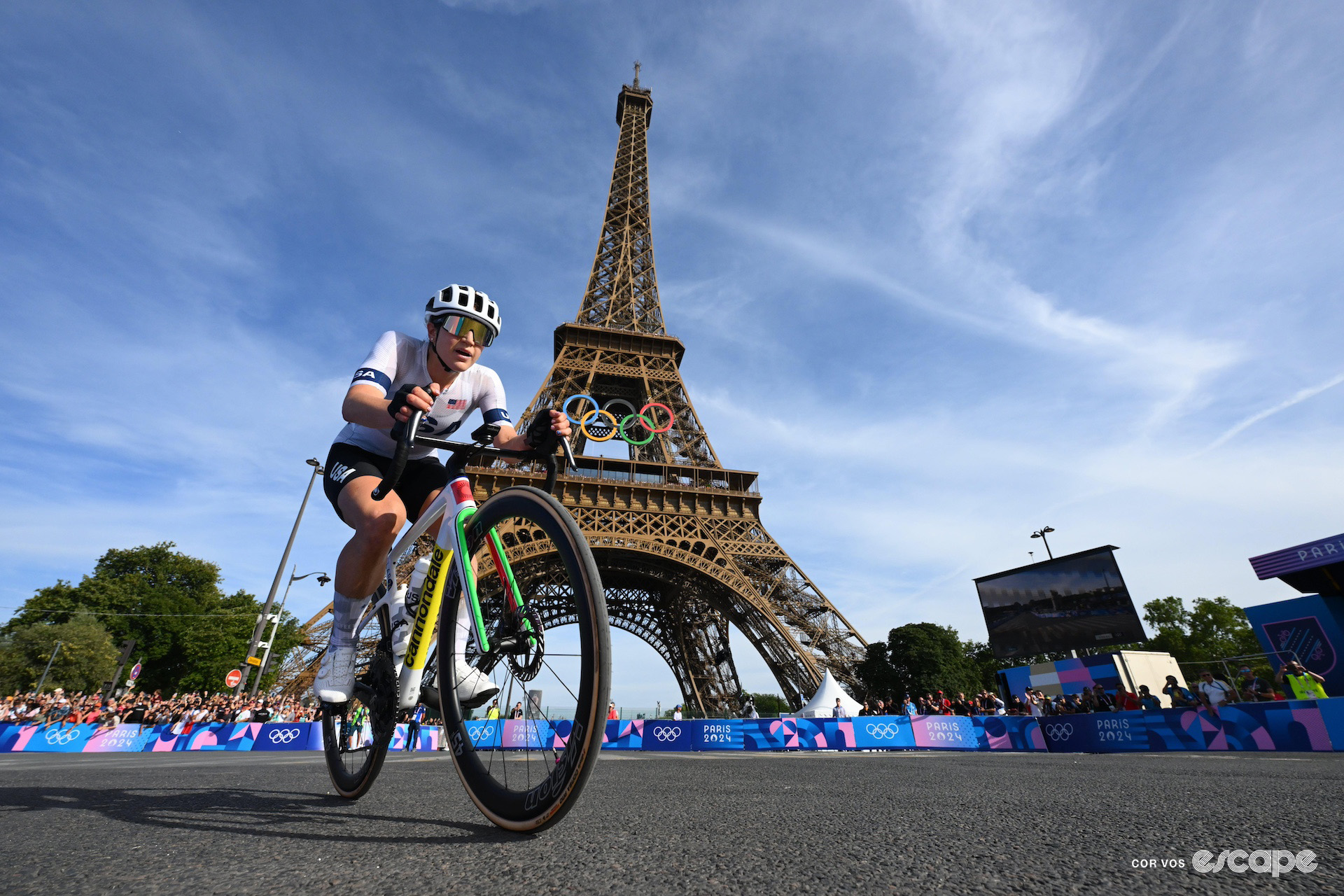Did we do a good job with this story?


The double Olympic gold medalist wouldn't be where she is today without her roots in CRCA's Central Park training races.
Kristen Faulkner (United States) on her way to victory in the women's Olympic road race at Paris 2024.